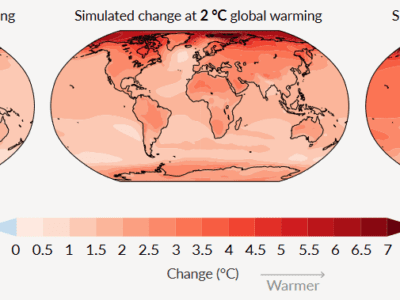U.S. single track proposal sounds a lot like WTO ‘single undertaking’
By Jesse Swanhuyser — One in a series of posts from the UCLA delegation at COP 15, Copenhagen
It appears the global North is once again seeking a compromise deal with the South, based on a promise that they can deliver political support at home. The developing world is bringing experience from WTO negotiations into the climate arena and are thus far resolute that the North prove their commitment by acting first.
During WTO negotiations in the early 1990s, the U.S. invited the EU to meet in Napa, California for a strategy session on how to coerce convince the developing world to accept a broad set of trade agreements, many of which the developing world swore they would never sign. Under the resulting Napa strategy, developed countries refused to agree to parts of the WTO that were Southern priorities unless the South agreed to an entire package of complex deals called the ‘single undertaking.’ In exchange, the developed world promised that the agenda in the next round of talks would focus on developing nations’ priorities. That round, branded the Doha Development Round and launched in 2001, is still going ‘round with no end in sight. Why? The U.S. and EU lack the political will to maneuver around powerful domestic interest groups—cough…agribusiness…cough—that prevent the necessary changes.
Fast forward to Copenhagen 2009. The developed world, largely the U.S., would like to move the whole of climate negotiations on to a single track. On this single track the global South would be required to make commitments along side their Northern partners. At fist glance this seems perfectly reasonable.
However, one should recall that a fundamental principle of climate negotiations is that of “common but differentiated responsibility.” The idea behind the principle is that of equity. In other words, the North is responsible for the vast majority of historic emissions, which as Bolivia explained yesterday “can be reasonably characterized as a climate debt.” Indeed, the North has agreed to put a down payment on the debt in two forms, after which the South would consider the structure of their own contribution to the crisis. First, the North committed to take the first steps on mitigation action, and assume the commensurate burden of trial-and-error costs associated with new climate technologies and policies. Second, the North loosely committed to enable (i.e. providing consistent funding for) costly efforts in the South to prepare the communities to confront climate impacts and make changes to their economies to meet the demands of a low carbon future.
The one track process proposed by the U.S. in the climate negotiations requires the South to build national climate programs and make commitments before the North, especially the U.S., has agreed to post-2012 emission reductions and created an institutional structure or committed to sufficient funding. Many of the developing country parties are willing to take on commitments, especially since their nations are currently the hardest hit. But they are understandably wary about making potentially costly commitments in the absence of proven dedication from the North. And given their experience with the WTO “single undertaking,” Southern wariness is a prudent move.






Reader Comments